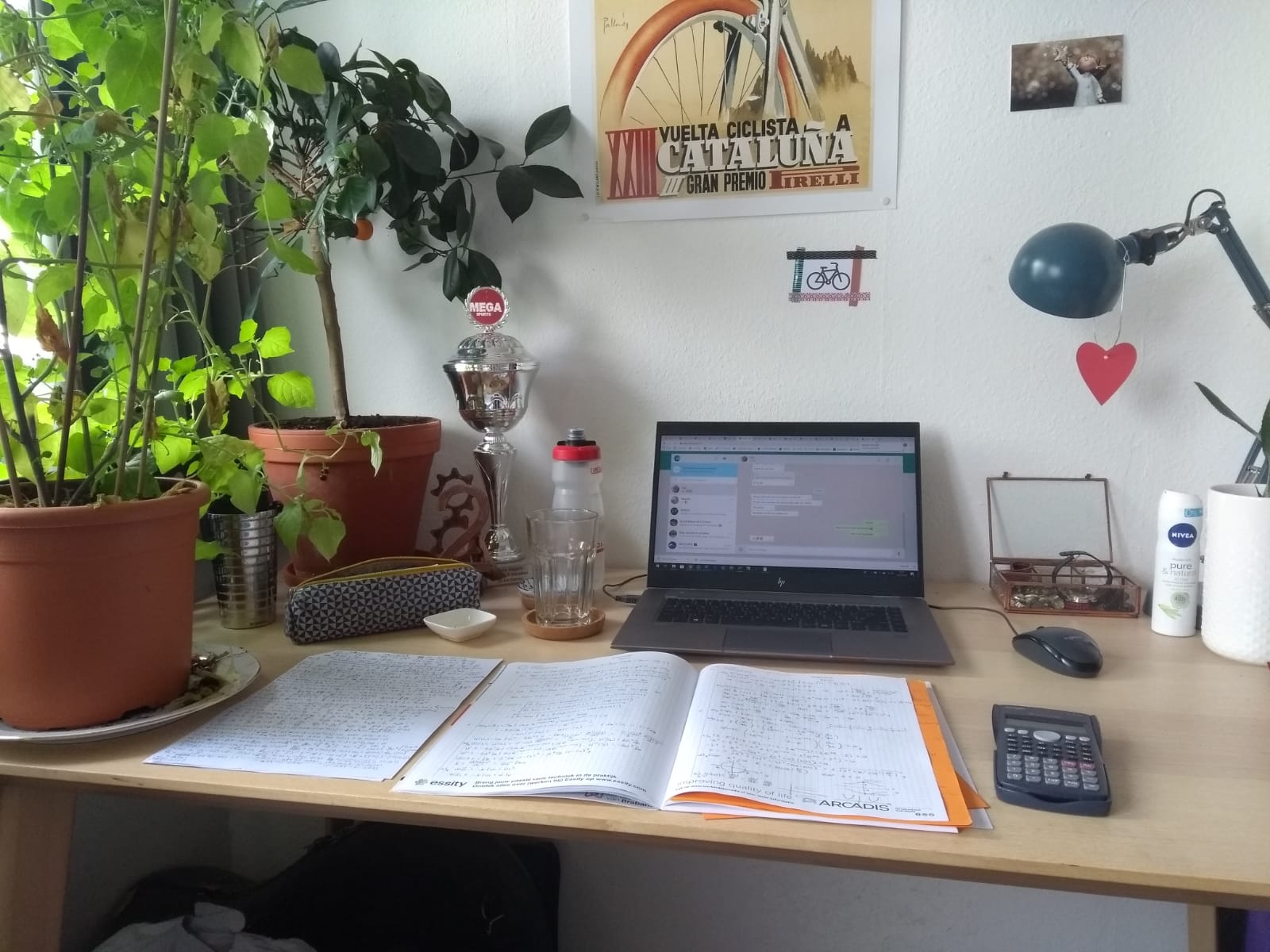TU Delft students have almost rounded off their first week of online education. Whilst it brings challenges it also sparks creativity amongst the student community.
Do you have other tips or tricks? Please share them with us. (Photo: Sija van den Beukel)
Rounding off the first week of online education with students gradually settling into their new study environment, we quickly realised it’s not easy to keep your focus when studying from home. So Delta asked the TU Delft student community to give us some tips and tricks on how to deal with the current situation. This is what you came up with.
Ding Talk
The first to reach out was architecture student Yanjiao Wang. She had set up an online self-study group on an app called Ding Talk. “It’s mostly used by companies, but it allows us to supervise and discipline each other to work on our studies.” Wang works in small groups of approximately 10 students. “Some are close friends, some are in the same faculty and some are neighbours. Every day someone else will take on the ‘manager role’ and will publish a work report at the end of the day. This report is based on users’ check-in and out of the system. This makes you feel peer pressure to keep working hard.”
Wang got hold of the application via the UNESCO website. This is just one way to keep in contact with groups of people, and the website offers a lot of creative solutions to help those trying to study or create study materials online.
Other applications used by TU Delft students are Discord or Microsoft Teams. “They’re great for online classes and submitting questions to your teachers,” says Luca.
Your tips and tricks
So once installed, how do we make sure our thoughts don’t drift off? How do we stop ourselves from bingeing on yet another Netflix series? We asked our followers on Instagram for suggestions and got over 20 responses.
The Developer Student Club Delft recommends using the ‘Pomodoro technique’, which helps stay focused at home. The time management technique uses a timer to break down work into intervals of, traditionally, 25 minutes separated by short breaks.
A similar idea was mentioned by BNieuws, the news platform of the Faculty of Architecture and the Built Environment. “Mix your studying tasks, do something different every hour and go outside for a 15 minute walk every two hours.”
Regular moving was one of the most frequently mentioned tips. Aditya Narayanan opted to go outside often to refresh your mind, and Industrial Design Engineering student Louise van den Wildenburg emphasised that taking short breaks to move will prevent repetitive strain injury (RSI).
Maintain your routine
Master students Dieuwertje den Besten and Anindya Paramaarti both strongly recommend students to wake up early to maintain their working routine. Paramaarti suggests to “keep or build a daily routine to give structure to your day. Not easy, but very helpful.”
To help maintain that routine, Supriya Thadi (Civil Engineering) suggests starting each morning with meditation. “Also, talk to friends and family during study breaks.” For Carmen Liu (3mE) it helps to put her phone away. “So I can’t hear it, not even the vibration. For Aerospace Engineering student Daniel Juschus it works to listen to his favourite music while studying while Abisheh Vupputur vouches for a distraction-free workspace, good music, and a strict schedule.
But maybe the most valuable tip we got was to just not be too hard on yourself. “And get enough snacks before watching online lectures,” as one of the students cheerfully concluded.
- Do you have other tips or tricks? Please share them on our Instagram page or email us at delta@tudelft.nl
Heb je een vraag of opmerking over dit artikel?
m.vanderveldt@tudelft.nl


Comments are closed.